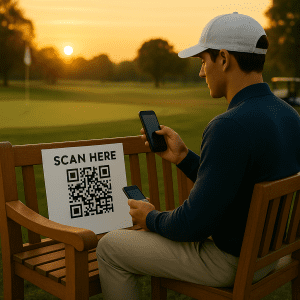In the crowded legal services landscape, personal injury attorneys face an uphill battle to capture attention and convert leads. Traditional strategies like billboards, PPC ads, and SEO-focused blogs are still essential, but an emerging differentiator is often overlooked: emotional resonance. By applying principles of neuromarketing, personal injury attorney marketing can become more compelling, memorable, and persuasive.
In this blog, we explore how emotional triggers, storytelling, and neuroscience-backed techniques are revolutionizing marketing for personal injury attorneys—and how your firm can harness them to connect more deeply with potential clients.
Why Emotional Resonance Matters in Personal Injury Attorney Marketing
Marketing for personal injury attorneys isn’t just about showcasing legal expertise. Your audience is often navigating trauma, confusion, and vulnerability. In these moments, decision-making is driven more by emotion than logic. That’s where emotional resonance—messaging that connects with core feelings—becomes vital.
According to Harvard professor Gerald Zaltman, 95% of purchasing decisions are made subconsciously. In personal injury attorney marketing, this means branding and messaging must trigger an emotional response before rational thought kicks in.
The Neuroscience Behind Emotional Triggers
The field of neuromarketing explores how the brain responds to various marketing stimuli. For personal injury attorney marketing, understanding the following neurological concepts is key:
Amygdala Activation
The amygdala processes emotions, especially fear and empathy. Ads that portray pain, injustice, or recovery activate this region, creating lasting impressions.
Mirror Neurons
These neurons make us empathize with others’ experiences. When viewers see someone suffering after an accident, they internally simulate that experience, building empathy and trust.
Dopamine and Trust
Reward-driven messaging (e.g., “We’ll fight for the compensation you deserve”) triggers dopamine, associating the attorney with a positive resolution.
How to Integrate Neuromarketing in Personal Injury Attorney Ads
Let’s break down specific, practical tactics to enhance emotional resonance in marketing for personal injury attorneys.
Use Real Stories, Not Stock Photos
Client testimonials and real-life recovery journeys outperform generic visuals. Use short video clips or print testimonials that highlight the transformation—from injury to justice.
Tip: Always anonymize or get client consent, and emphasize outcomes like “getting back on their feet” to evoke hope.
Embrace Narrative Storytelling
Instead of listing services (e.g., “Car Accident? Call Now!”), frame your ad with a mini-narrative. Example:
“James was hit while biking to work. Our team helped him secure justice, peace of mind, and his family’s future.”
Stories are processed 22x faster by the brain than standalone facts and leave stronger memory traces.
Design with Color Psychology
Colors trigger subconscious emotional responses. For personal injury attorney marketing, leverage:
Red for urgency and strength
Blue for trust and credibility
White for clarity and hope
Use a consistent palette across your ads for instant brand recognition.
Implement High-Impact Headlines
Emotionally charged headlines outperform informational ones. Compare:
❌ “Experienced Personal Injury Attorney”
✅ “Injured? We’ll Fight for What You Deserve.”
Words like “fight,” “justice,” and “recovery” activate both logical and emotional parts of the brain, encouraging contact.
Where Emotional Ads Work Best
Your emotionally resonant personal injury attorney marketing strategy needs smart placement. Here are high-performance channels that align with this neuromarketing approach:
Doctor’s Offices & Pharmacies
These are environments where injured individuals are already present. Ads in waiting rooms or pharmacy bags can meet prospects at a moment of need.
Social Media Video Ads
Video excels at storytelling. Short reels or TikToks with emotional music, client quotes, and a call-to-action are highly shareable and neurologically sticky.
Hyperlocal Print Ads
Localized flyers or OOH ads with emotional imagery placed near hospitals, ERs, or rehab centers are more relevant and trustworthy than generic online banners.
Measuring the Impact of Emotional Resonance
To ensure your emotionally driven personal injury attorney marketing is working, track:
Ad recall surveys: Do people remember your ad days later?
Lead sentiment analysis: Are leads referencing emotions in inquiries (“I felt like your ad understood me”)?
Conversion uplift: Compare emotional vs. traditional ad formats.
Case Studies: Firms That Used Emotion to Win Big
Example 1: Florida-Based Firm Uses Family-Centric Messaging
A personal injury law firm shifted their tagline from “Aggressive Injury Lawyers” to “Protecting Families After Tragedy.” Result? A 35% increase in ad recall and higher retention among female prospects aged 30–55.
Example 2: Empathy-Focused Retargeting
A New York firm retargeted ER visitors via geofencing with testimonial-based display ads featuring real client voices. Conversions jumped 28% in 3 months.
Final Thoughts
Personal injury attorney marketing is no longer about shouting the loudest or appearing in the most places. It’s about connecting on a human level—activating empathy, earning trust, and guiding potential clients through one of the hardest times of their lives.
Neuromarketing offers an edge that digital and traditional strategies often overlook. When you build campaigns that speak to the heart and the mind, you don’t just generate leads—you build loyalty, referrals, and reputation.






